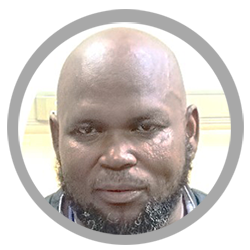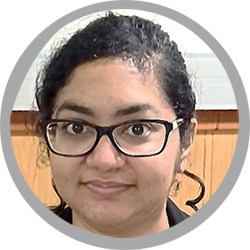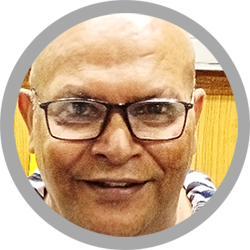News & Events
Unstoppable students living with disabilities champion change at Unisa
Who better to understand the challenges faced by students with disabilities than those who live them every day? At Unisa KwaZulu-Natal, a group of student leaders with disabilities are stepping up to champion change, break down barriers, and build a more inclusive academic community. Their stories are not just inspiring – they're a call to action.

Brian Sibiya
Brian Sibiya, Chairperson of the Advocacy and Resource Centre for Students with Disabilities (ARCSWiD) KwaZulu-Natal Regional Forum, is a student living with skeletal disabilities affecting his mobility, as well as diabetes and hypertension. He emphasises the critical role of accessibility and support in his academic journey at Unisa, highlighting the invaluable assistance provided by ARCSWiD. While acknowledging progress, Sibiya points out challenges like the closure of the multi-purpose computer lab and a lack of awareness regarding invisible disabilities. He actively educates others about the diverse nature of disabilities and advocates for greater understanding and proactive inclusion from all stakeholders.
Sibiya's passion lies in ensuring an inclusive Unisa experience for all students, and he frequently supports his peers. He believes openness about disabilities is crucial for accessing necessary support and encourages students to disclose their conditions. Sibiya's leadership role has honed his communication, organisational, and teamwork skills. He stresses the importance of empathy and structured planning in navigating university life and recognises the value of peer assistance in fostering a sense of belonging.
Bianca Naicker, Deputy Chairperson of the ARCSWiD KwaZulu-Natal Regional Forum and a deaf student at Unisa, has faced numerous challenges navigating campus facilities and academic requirements. Limited accessibility of online course materials, particularly videos and webinars without captions, poses a significant obstacle. Communication with lecturers and tutors unfamiliar with sign language and deaf culture is another major hurdle, especially during exams, where she requires additional time and support due to the unique structure of sign language. Naicker wishes for more resources to improve communication skills, career development, and training and internship opportunities. While she acknowledges Unisa's efforts towards inclusivity, she believes greater awareness and understanding of disabilities are needed, particularly among hearing students. She recounts positive experiences with the ARCSWiD KwaZulu-Natal Regional Forum team, who have been understanding and accommodating in meetings.

Bianca Naicker
Naicker has encountered some biases, such as assumptions about her ability to participate fully and a lack of awareness about deaf culture. She addresses these by educating herself about her rights, advocating for accommodations, seeking support from Unisa's Disability Unit, and engaging in open communication. Naicker proposes new subjects focusing on communication skills for interacting with hearing individuals in professional settings.
Naicker joined the ARCSWiD KwaZulu-Natal Regional Forum to support the deaf community, which faces communication challenges due to team members’ lack of sign language knowledge, which she plans to address using speech-to-text technology. Committee work has broadened her understanding of challenges faced by students with disabilities and developed her leadership, communication, and problem-solving skills. She encourages students with disabilities to support each other, creating mutually beneficial networks.
Naicker identifies key challenges for students with disabilities, including accessibility barriers, lack of awareness, inadequate support services, communication barriers, and social isolation. She hopes the committee will work to improve accessibility, raise awareness, enhance support services, facilitate communication, and foster inclusivity. She balances her leadership role and studies through prioritisation, goal setting, and time allocation, aided by assistive technologies.
Naicker emphasises the importance of peer support in creating a better environment. Her advice to new students with disabilities is to be confident, self-advocate, explore support services, connect with peers, stay organised, and celebrate their accomplishments.

Roy Moonsamy Naidoo
Roy Moonsamy Naidoo is Treasurer of the ARCSWiD KwaZulu-Natal Regional Forum. His lower abdominal cancer and subsequent radiation treatments have resulted in spinal and pelvic weakness, limiting his mobility significantly. He is mostly bed-bound and cannot run, jump, walk long distances, or stand unassisted. While Naidoo believes Unisa has support services, he encountered difficulties during a recent campus visit, where he couldn't find a wheelchair and received no assistance upon arrival. Naidoo wishes for resources like electric wheelchairs. He finds his peers understanding but feels that Unisa could demonstrate more care and support for students with disabilities.
Naidoo has experienced subtle biases related to others' attitudes towards disabled individuals. He advocates for Unisa to provide bursaries or financial assistance, recognising that many students with disabilities are unemployed and that further education can help them achieve their goals. He joined the regional committee to advocate for changes that assist students with disabilities, particularly by ensuring they receive all available support, including financial aid.
Naidoo advises students with disabilities to always help each other. He believes these students' most significant challenges are often related to unemployment and a lack of financial resources. He aims to raise funds to purchase equipment like computers and provide financial aid for study fees. In addition, he highlights his current experiences in applying for a bursary to further his master's degree notes that he may need to sell personal possessions to cover his costs if his application is unsuccessful.
As he is currently unemployed, he has the time to balance his committee role with his studies. Naidoo emphasises the importance of peer support and mutual assistance in creating a more inclusive environment. His advice to other students with disabilities starting their university journey is to remember that they are not alone, embrace opportunities, stay determined, and believe in themselves.
* By Jo Cossavella, Communications Officer, KwaZulu-Natal Region, with input from ChatGPT
Publish date: 2025/02/11
